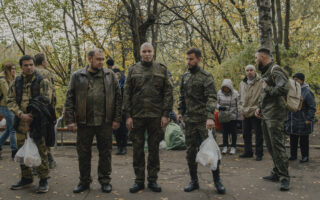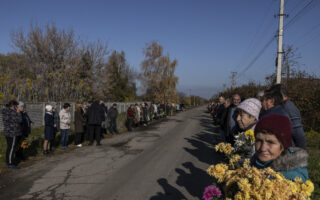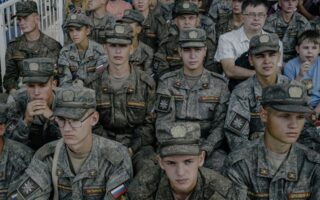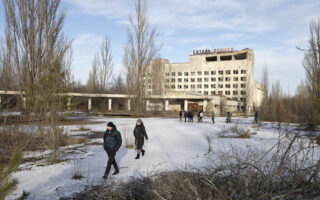Future of Wagner leader’s business empire is cloudy after rebellion
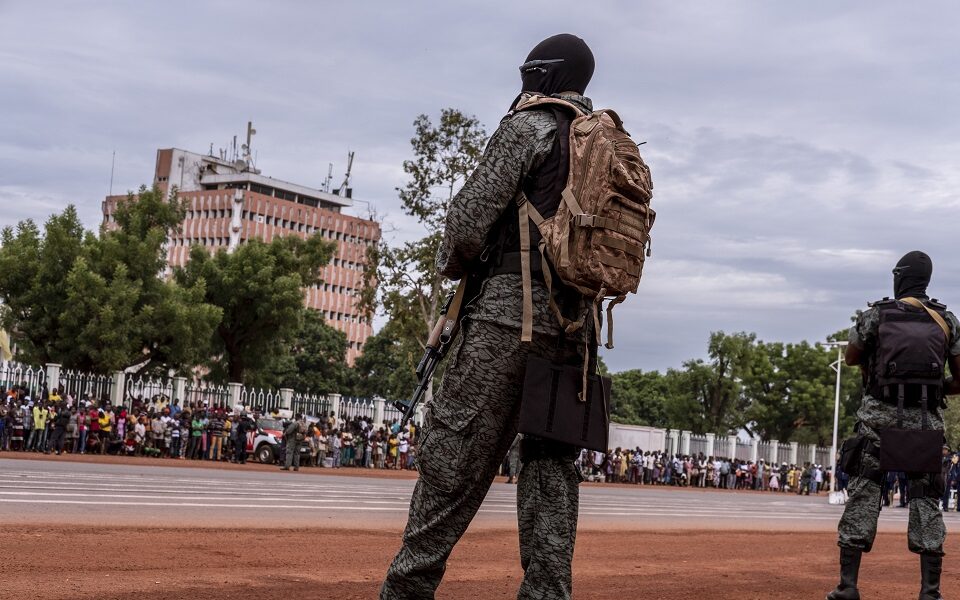
A chocolate museum in St. Petersburg. A gold mine in the Central African Republic. Oil and gas ventures off the Syrian coast.
The economic ventures of Yevgeny Prigozhin, a former hot dog seller turned Wagner group warlord who staged a brief mutiny against Russia’s military last month, stretch far beyond the thousands of mercenaries he deployed in Ukraine, Africa and the Middle East.
Through a vast network of shell companies and intermediaries, Prigozhin’s activities have included catering, producing action movies, making beer and vodka, cutting timber, mining diamonds and hiring people to sow disinformation in elections abroad, including the 2016 U.S. election.
The exact size of his business is a mystery.
With Prigozhin’s whereabouts unknown, the fate of his sprawling empire is uncertain. President Vladimir Putin has said Russia financed Prigozhin’s enterprises, but it’s unclear how much control the Kremlin has over the business network, which reaches thousands of miles away from Moscow, experts say.
“It will certainly not look exactly as it has, in terms of who is leading it, how much oversight the Kremlin will have, and how long the leash it will allow Wagner to operate with,” said Catrina Doxsee, an expert on irregular warfare at the Center for Strategic and International Studies, a Washington-based research organization.
Here is a look at Prigozhin’s business interests.
Russia and Ukraine: Catering, real estate and mercenaries
From his humble beginnings as an amateur cross-country skier and former convict, Prigozhin carved a path through the tumult of post-Soviet Russia, laying the foundations for his empire by opening hot dog kiosks in 1990 and later providing catering for the Kremlin — earning him the nickname “Putin’s chef.”
Over the decades, he secured billions in state contracts and controlled an extensive portfolio of businesses, mostly in St. Petersburg, Russia’s second-largest city and his birthplace.
Prigozhin’s ventures have included construction, catering and entertainment. He ran a media company, which has begun being dismantled since his mutiny, and pioneered troll farms that sought to shape the 2016 American presidential election. His companies run hotels, restaurants, business centers and a gourmet grocery store on St. Petersburg’s main thoroughfare.
Whether his businesses made consistent profits is not clear: Some have gone under, others have stayed afloat. Over the years, Prigozhin used money from state contracts paid to some of his companies to finance his other projects, including shadowy tasks apparently ordered by the Kremlin.
“They were all interconnected, these vessels, in the sense of general management and in the sense of possible flow of funds,” said Marat Gabidullin, a former assistant of Prigozhin’s who fought for the Wagner group before seeking asylum in France.
The Wagner group was paid almost $10 billion by the Russian government, according to Russian state media. Prigozhin secured contracts worth another $10 billion from the Kremlin for his catering company.
Last week, the autocratic leader of Belarus, Alexander Lukashenko, who intervened in the mutiny, signaled that at least some of Wagner’s fighting force could stay intact. And on Monday, it was reported that Putin met with Prigozhin just five days after the mutiny. The Kremlin spokesperson, Dmitry Peskov, said that “further employment options” for the mercenary group were among the matters discussed.
In June, Prigozhin admitted that he used profits from lucrative state contracts to finance Wagner in Africa, Syria and elsewhere — but always “to pursue the interests of the Russian state.”
“It all functions as a business model — he uses state resources to pursue various projects,” Gabidullin said. “And within this, he gets his own bonus.”
Africa: Soldiers for hire, and interests in gold and timber
Wagner’s primary business in Africa is mercenaries: From Libya in the north to Mozambique in the south, the group has deployed troops in five African countries, providing security to presidents, propping up authoritarian leaders and fighting armed groups, often at a high cost for civilian populations.
In the Central African Republic, Wagner provides security to the president, Faustin-Archange Touadéra, and trains the army. Observers have called the group’s actions in the nation “state capture” because of how Wagner has influenced political decisions to further its interests at the expense of the public.
According to the United States, a military-led government in the West African nation of Mali has paid Wagner around $200 million since late 2021, essentially for mercenaries to fight against groups affiliated with al-Qaida and the Islamic State group.
Wagner operatives also helped boot out a decadelong United Nations peacekeeping operation, according to White House officials, forcing Mali to rely almost exclusively on Russia.
Beyond mercenary work, businesses affiliated with Prigozhin have been present in more than a dozen countries. They mine gold in Sudan and the Central African Republic, where they also export timber, make beer and vodka, run a radio station, and have produced action movies and organized a beauty pageant.
A firm affiliated with Prigozhin also controls the Central African Republic’s largest gold mine, and recently signed new mining permits there for the next 25 years. The mine could bring $100 million in revenue to the group each year, according to Hans Merket, a researcher on minerals for the Brussels-based IPIS organization.
Fidèle Gouandjika, a top adviser to the country’s president, said Wagner had protected against rebels; made quality wood available to Central Africans through their timber business; and was selling cheap beer.
“So we’re telling them, ‘Take some diamonds, take some gold,’” Gouandjika said about what Central African officials were offering Wagner for its services. “The West is jealous.”
Syria: Assad’s protectors and oil and gas explorers
As Prigozhin staged his mutiny last month, Russian troops in Syria surrounded several bases where Wagner mercenaries were stationed, including around the capital, Damascus. Fearing movement from Wagner fighters, Syrian forces set up checkpoints around the bases; the country’s intelligence services were put on alert; and telecommunications were jammed. The response was another sign of Prigozhin’s long reach.
Officially, Russia intervened in Syria in late 2015 to help the authoritarian regime of President Bashar Assad turn the tide against rebels trying to oust him.
But Russian paramilitary fighters with a group known as the Slavonic Corps were detected in Syria as early as 2013, experts say. Although detailed connections between the Slavonic Corps and Wagner remain unclear, many Wagner commanders were originally part of the corps, according to Gregory Waters, a scholar at the Middle East Institute.
Wagner asserted its presence in Syria in 2017. While the Russian military brought in its air force and commanders, the bulk of its front-line personnel came from Wagner, Waters said.
Wagner fighters both captured territory from rebels and the Islamic State group and guarded oil and gas fields and Palmyra, an important tourist site.
US intelligence officials have described Wagner’s goal in Syria as seizing oil and gas fields and protecting them for Assad.
At least four companies linked to Wagner and registered in Russia have exploration permits for sites in Syria, according to Lou Osborn, an analyst at All Eyes on Wagner, an open-source research group. All have been placed under sanctions by the U.S. Treasury Department.
These activities have been central to Russia’s quest to become an energy superpower, said Candace Rondeaux, an expert on Wagner who is a senior director at New America, a Washington research group.
“With Russia there’s no deconflicting or disentangling military interests from energy interest,” Rondeaux said.
Gabidullin, the former Wagner fighter, said that Prigozhin’s far-reaching network abroad had grown too much for the Kremlin to fully control it.
“He has so many specialists there,” he said. “It is the Ministry of Defense’s specialists who need to learn from his staff.”
This article originally appeared in The New York Times.


